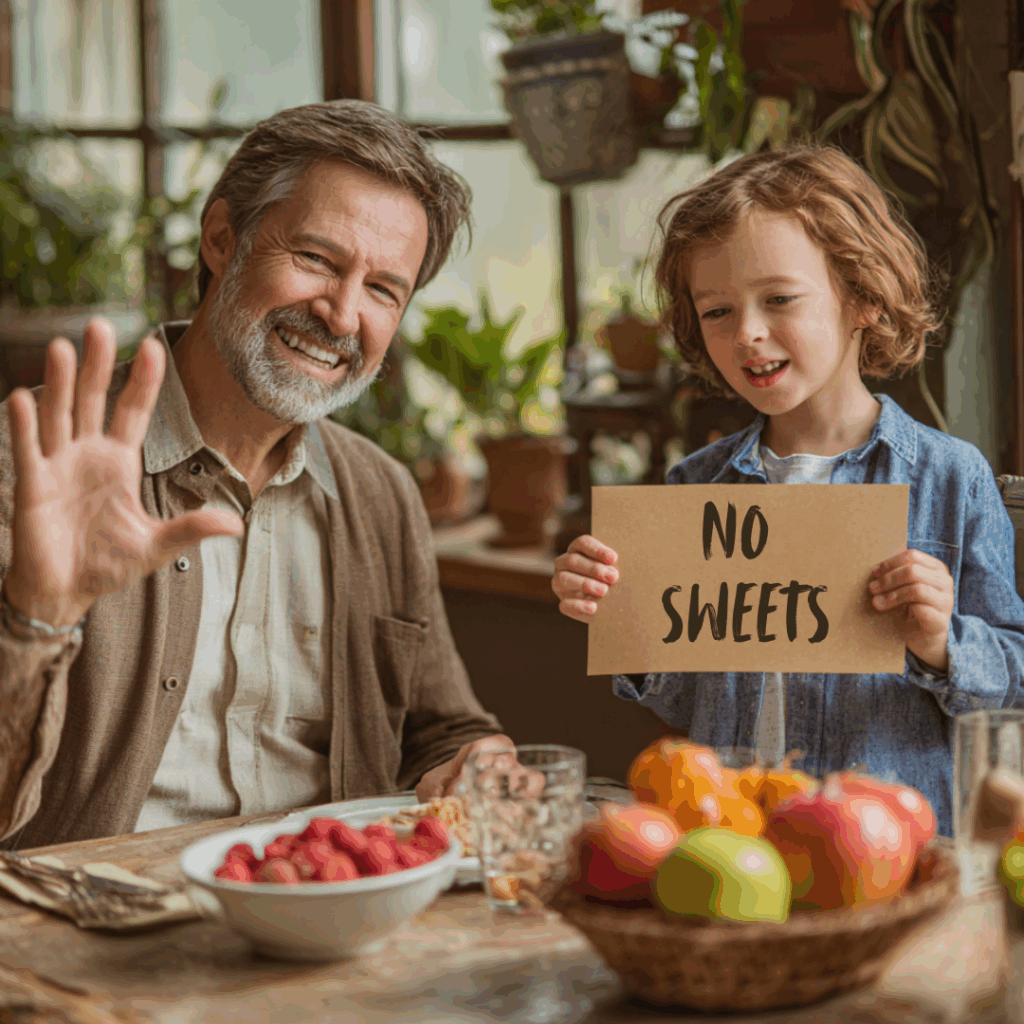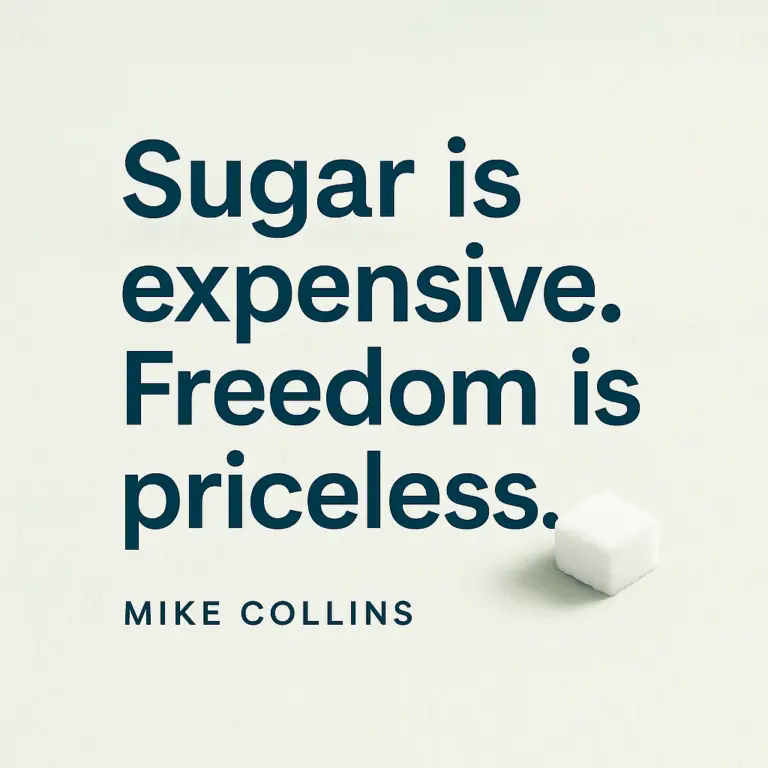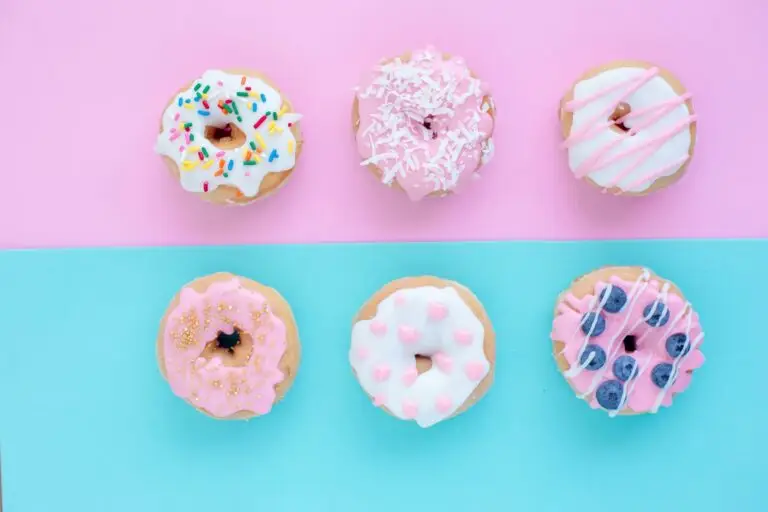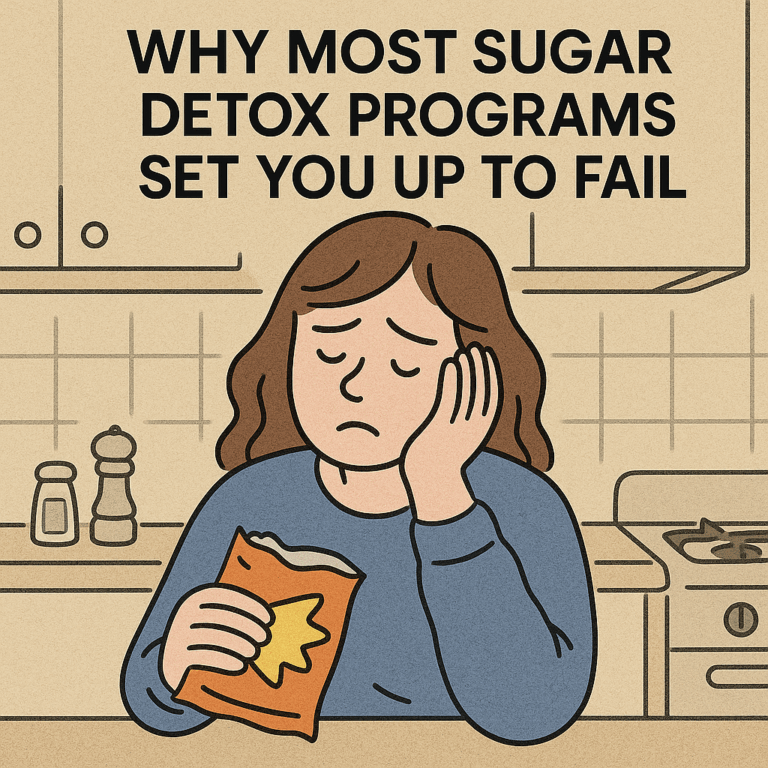By Mike, The SugarFreeMan
Founder of SugarDetox.com and the 30-Day Sugar Freedom Challenge

If you’ve ever tried to quit sugar, you probably know the strange guilt that creeps in. You tell your kids “no” when they ask for cookies. You stop stocking the pantry with “treats.” You feel the side-eye from your spouse when family traditions change. And a small voice inside whispers: “Am I being selfish?”
Quitting sugar often feels selfish because it means saying “no” to family traditions and focusing on your own health. In reality, it’s the most selfless thing you can do-for yourself and for the people you love.
This article was review by Dr. Camela McGrath, MD, FACOG. Find more about her here
The Hidden Guilt of Quitting Sugar

When you start detoxing from sugar, the guilt can hit harder than the cravings. You’re not just fighting biology-you’re battling years of family traditions, social norms, and your own identity as the “sweet tooth.”
Truth: Feeling guilty about quitting sugar is normal. It doesn’t mean you’re selfish. It means you care deeply about the people around you.
Why It Feels Selfish
- Your kids want treats. You feel like the “bad guy” for saying no.
- Your spouse isn’t on board. They may still want dessert in the house.
- You’re focusing on yourself. That alone can feel wrong when you’re used to being the caregiver.
The irony is this: taking care of your health is one of the greatest gifts you can give your family. Twenty years from now, your kids won’t remember missing a cupcake. They’ll remember having a healthy parent who could play, travel, and be present.
If you’re serious about breaking free, our 30-Day Sugar Detox Challenge will walk you through every step. You don’t have to guess anymore.
Why We Cling to Sugar So Tightly
Sugar isn’t just food-it’s identity. For years you may have called yourself a “chocoholic” or “sweet tooth.” Maybe baking was your love language. Maybe candy was your comfort after a hard day.
Letting go feels like losing a part of yourself. And when withdrawal symptoms kick in-headaches, irritability, fatigue—it’s easy to feel like you’ve made the wrong decision.
The Science of Why It Hurts
Research shows sugar lights up the brain’s reward pathways much like drugs and alcohol do (NIH). That’s why quitting isn’t just a matter of willpower-it’s a neurochemical shift. Your body is literally rewiring itself.
Key takeaway: The guilt, cravings, and emotional swings are not proof you’re failing. They’re proof your brain and body are healing.
The Role of Self-Care in Sugar Detox
Here’s the part most people miss: you can’t muscle your way through sugar withdrawal with grit alone. Self-care isn’t optional-it’s medicine.
What Self-Care Looks Like in Early Recovery
- Resting when you’re tired instead of powering through
- Eating real, nourishing meals with protein and healthy fats
- Hydrating more than you think you need
- Taking short walks to reset your mind and body
- Talking honestly with someone who understands
Permission granted: You’re allowed to focus on your health. In fact, you need to.
In 25+ years of helping people detox from sugar, I’ve seen the same pattern: what people need most in the early days is permission. Permission to slow down, to care for themselves, to not feel guilty for saying no to cupcakes at a birthday party.
Why Quitting Sugar Is the Opposite of Selfish
Think about it. When you stop pouring sugar into your system, you:
- Lower your risk of type 2 diabetes (CDC).
- Reduce inflammation that drives fatigue and brain fog (Harvard Health).
- Gain energy, focus, and presence for the people you love.
That’s not selfish-that’s leadership. You’re modeling strength and health in a culture that normalizes sugar addiction.

Ready to stop feeling guilty and start healing? Join the 30-Day Sugar Detox Challenge today and create a safe, structured path forward.
About the Author
Mike Collins, known as “The SugarFreeMan,” has been sugar-free for over 35 years and is the founder of SugarDetox.com. He has helped tens of thousands of people break free from sugar addiction through his evidence-based approach combining nutritional science with practical behavior change strategies.
Medical Disclaimer
This article is for educational purposes only and is not intended to replace professional medical advice. Always consult with a healthcare provider before making significant dietary changes, especially if you have underlying health conditions.
FAQs
Q1: Why does quitting sugar feel selfish?
Because it often means saying no to family treats or traditions. But it’s not selfish-it’s choosing health and long-term presence for yourself and your loved ones.
Q2: How do I deal with guilt when I stop buying sugary foods for my family?
Remember that the short-term “treats” don’t compare to the long-term gift of having a healthier, more present parent or partner.
Q3: What makes sugar so hard to quit?
Sugar lights up the brain’s reward system, much like drugs. Quitting isn’t about willpower-it’s about breaking a physical dependency.
Q4: What self-care practices help during sugar withdrawal?
Prioritize rest, hydration, balanced meals with protein and fat, and gentle movement. These ease withdrawal and stabilize your body.
Q5: Is it selfish to focus on my health when I’m a caregiver?
No. Caring for yourself first ensures you have the energy, clarity, and strength to care for others-much like putting on your oxygen mask first.
Q6: How can I stay consistent after the first week of quitting sugar?
Structure and support are key. Many people find success in guided programs like the 30-Day Sugar Detox Challenge, where accountability makes the difference.






